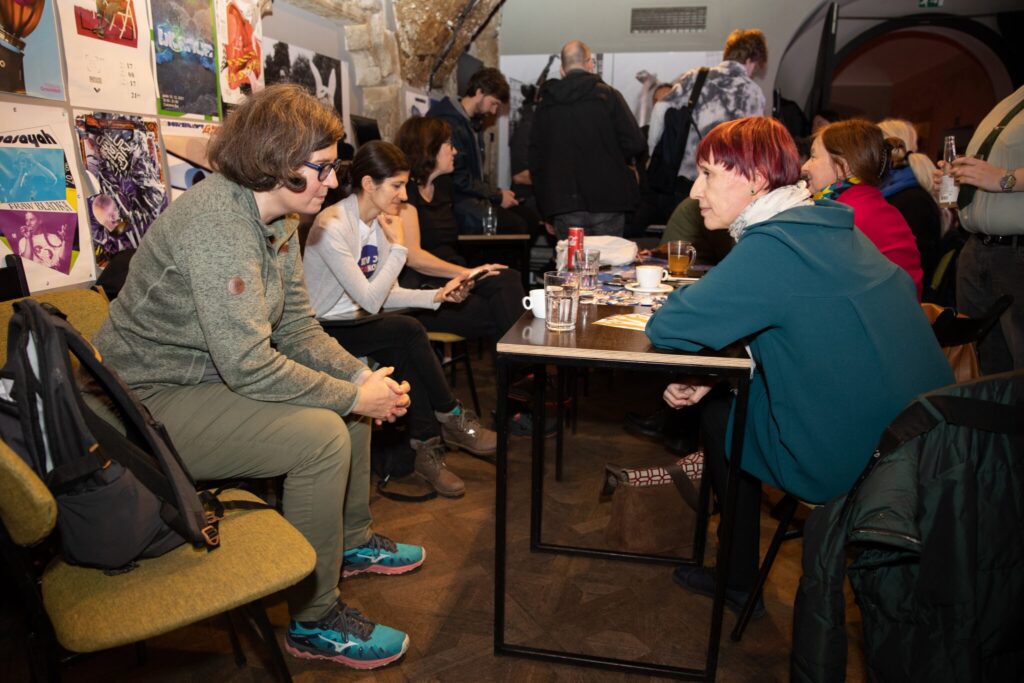We have known for a very long time that the European Commission is a political body. We found this out during the Janez Janša government, when we were astonished to discover that serious European politicians were faithfully and unchecked writing down and repeating the arguments of Slovenian political far-leftists and media activists in the European Commission’s report on the rule of law in Slovenia. What was in the report is not surprising, given that the rapporteurs were, among others, Blaž Petkovič, a journalist for Odlazek’s newspaper Večer and a member of the left-wing journalists’ guild, the Slovene Association of Journalists (Društvo novinarjev Slovenije – DNS), and Marko Milosavljević, a politicking professor who lied in the New York Times that the commercial television station Pop TV was sending all its stories to Prague so as not to offend Janez Janša. Funny, but European dignitaries believed such bizarre stories and, together with Slovenian media activists, painted an imaginary world where Janša’s government was on par with Lukashenko’s regime.
We already knew that the reports on the rule of law in the European Commission, based on the analyses and research of the committees of the left-dominated European Parliament, would be much more favourable to the left-wing government of Robert Golob, because now, naïve European politicians will no longer be subjected to a river of continuous reports on how journalists have to hide from the tyrannical regime of Janez Janša. For there were signals from Brussels in advance that the situation in Slovenia had “improved”. But that they would be in such obvious collusion with the current ruling politics, as it turned out, was something we had not imagined.
The Representation of the European Commission in Slovenia (known for being saturated with leftist bureaucrats) recently announced that the debate on the soon-to-be presented State of the Rule of Law Report 2023, entitled Media, Journalism and Democracy, will be held in the bar called Pritličje (Ground Floor), at the address Mestni trg 8. Where is that again?
The bar is owned by a lawyer from The Legal Network
It is a bar in Ljubljana called Pritličje, run by Barbara Rajgelj, a lawyer and a member of the Legal Network for the Protection of Democracy (Pravna mreža za varstvo demokracije), that is, the far-left network of lawyers who drafted the law on the national media outlet RTV Slovenia, a law about which we still do not know whether it is even constitutional or not, but at the same time a law with which Golob’s government, together with the civil society that wrote the law, took control of RTV Slovenia and (as the first moves of the new Programme Council show) completely subjugated it to itself.
“These are all our people”
The list of participants in the debate includes Nataša Briški, who is the host of a left-wing [taxpayer-sponsored] podcast, as well as Aljaž Pengov Bitenc, who is a loyal left-regime analytical companion of the hard left, and who also appears on her podcast. Other interlocutors are the representative of the European Commission, Auridis Perkauskas, the owner of the bar Pritličje Barbara Rajgelj, otherwise a representative of the Legal Network (with which, as already mentioned, the government took over RTV Slovenia), the far-left RTV journalist Ksenja Horvat, and Lenart J. Kučić, the representative of the Ministry of Culture – the ministry currently headed by Asta Vrečko, which has repeatedly upset the public with its extreme populist left-wing measures (the abolition of the Museum of Slovenian Independence, the minister’s “pilgrimage” to Čebine to commemorate the founding of the Communist Party, the funds from the public tender for the media going exclusively into the hands of private individuals linked to the left-wing government,…).
The opposition leader Janez Janša “welcomed” the meeting with a tweet, writing, “It is as if the European Commission would have organised a debate on the Report on Human Rights Violations during the Russian aggression against Ukraine – at the Russian Embassy in Brussels. How is this possible?”
In his tweet, he tagged the European Commission President Ursula von der Leyen, Manfred Weber, and European Commissioner for Justice Didier Reynders.
We can only hope that Avbelj will be a loud enough voice of reason in the debate to be heard by the European Commissioner. If the latter will even want to hear him, of course.
Andrej Žitnik


